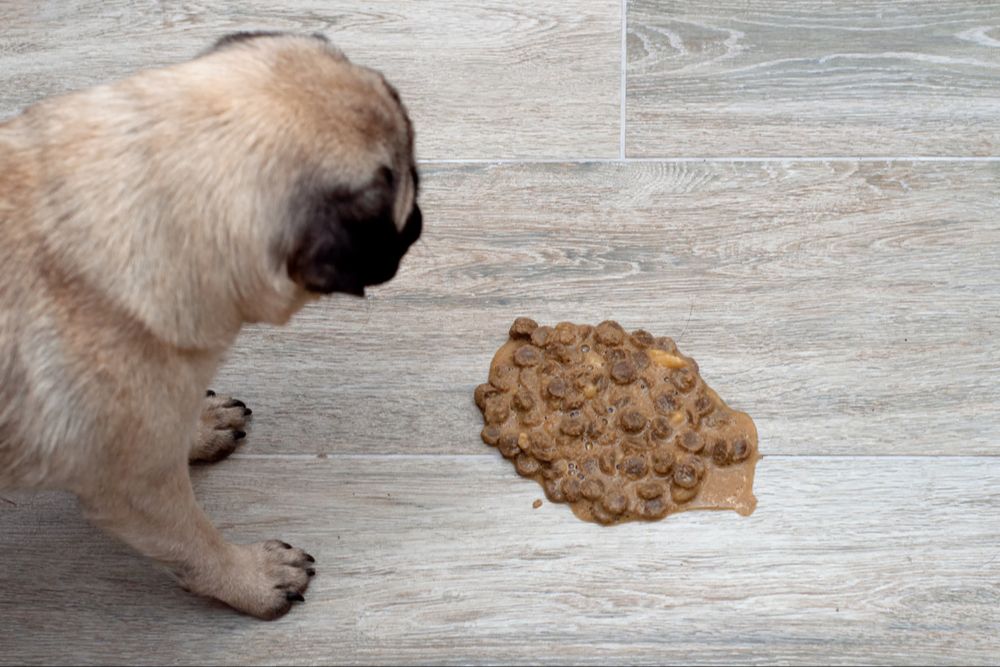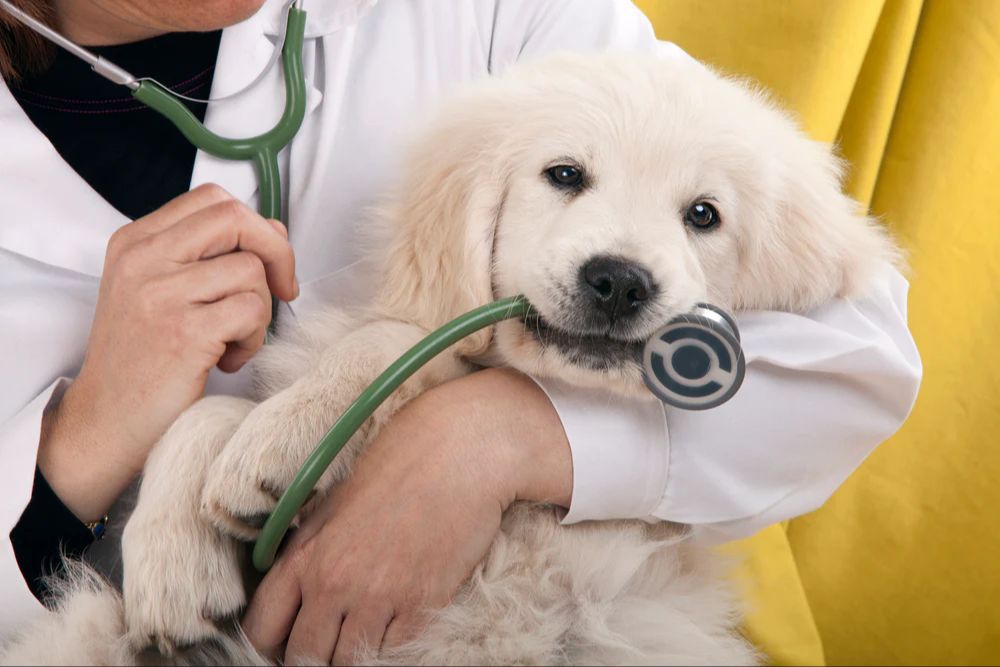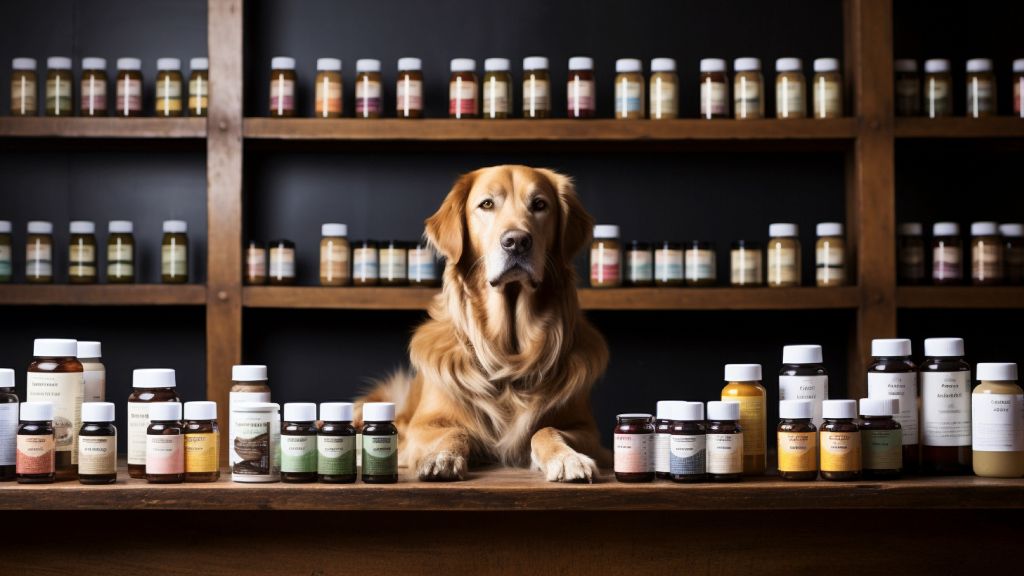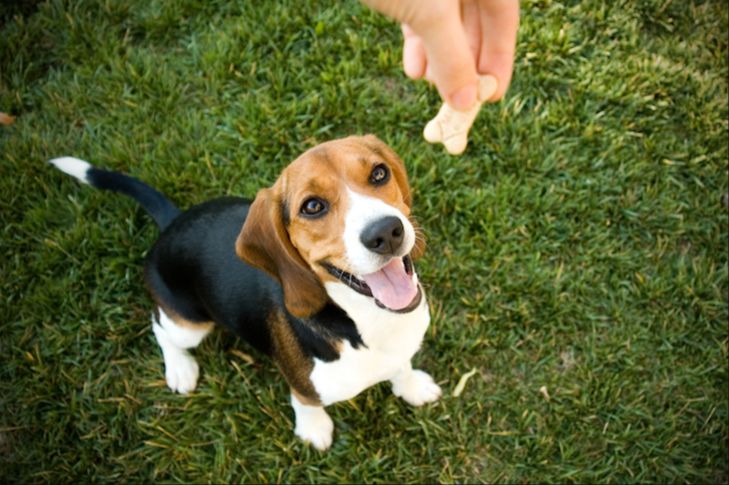Why Is My Dog Eating Cat Poop?
It’s an unpleasant situation no pet owner wants to deal with – you catch your dog happily eating cat feces like it’s an acceptable snack. Understandably, you’re worried about your dog’s health and desperate to stop this repulsive habit. In this article, we’ll explore the reasons behind coprophagia (the scientific term for poop eating), look at the potential health risks, and provide actionable solutions to curb this behavior.
Why Dogs Eat Cat Poop
One of the main reasons dogs eat cat feces is due to nutritional deficiencies in their diet. According to research from Stanford University, coprophagia (the scientific term for eating feces) can manifest when a dog is lacking certain minerals and nutrients [1]. When a dog is missing key vitamins and minerals such as B vitamins, calcium, and zinc, they may resort to eating cat feces as a way to supplement what’s missing in their food.
Since cat feces often contains more protein and fat than dog food, dogs eating it may be trying to increase their nutritional intake. Additionally, deficiencies in thiamine, niacin, pyridoxine, and pantothenic acid could trigger a dog to eat poop. Ensuring your dog’s diet is balanced and contains sufficient levels of these vitamins can help curb the behavior.
Health Risks
There are several health risks that dogs can face from eating cat feces.
One major risk is parasites. Cat feces often contain parasites like Toxoplasma gondii or Toxocara cati, which can be transmitted to dogs who eat cat poop. These parasites can cause gastrointestinal issues like diarrhea and vomiting in dogs (Source).
Viruses are another concern. Cat feces may contain viruses like parvovirus that can infect dogs who ingest it. Parvovirus specifically attacks the intestinal tract and causes bloody diarrhea, vomiting, and more in dogs (Source).

Finally, cat feces often harbors harmful bacteria like Salmonella or E. coli. These bacteria can lead to gastrointestinal illness in dogs, resulting in symptoms like diarrhea, dehydration, abdominal pain and lethargy (Source).
Signs of Illness
Dogs can exhibit several symptoms if they become sick after eating cat feces. Two of the most common signs are vomiting and diarrhea. According to Dutch Pet, dogs may vomit soon after ingesting cat feces as their body tries to expel the foreign substances. Diarrhea containing blood or mucus may also occur within 24 hours.
Lethargy is another key symptom to watch out for if your dog eats cat poop. As mentioned in WagWalking, dogs who have ingested toxins, parasites or other dangerous pathogens from cat feces may become extremely tired and lack energy. They may sleep more often and be unwilling to exercise or play. If lethargy occurs along with vomiting and diarrhea, it’s a sign your dog may have a more serious illness from eating cat feces and should see a vet immediately.
Duration of Illness
The duration of illness after a dog eats cat feces depends on several factors, most notably what exactly was ingested. Here are some general guidelines on illness duration:
- Bacterial infections like toxoplasmosis – These can cause vomiting, diarrhea, lethargy, and fever for 1-2 weeks if untreated. Dogs should see a vet right away for medication.
- Parasites like hookworms or roundworms – Parasites can cause cyclical vomiting, diarrhea, weight loss and lethargy over several weeks. Anti-parasitic medication from a vet will be needed.
- Dietary issues – Eating a large amount of cat feces may cause mild vomiting or diarrhea for 12-24 hours as the dog’s stomach reacts to the foreign food source.
- No illness – If the cat feces contained no harmful pathogens or parasites, the dog may show no symptoms of illness at all.
In summary, illness duration ranges from no symptoms up to several weeks depending on the type of pathogen or parasite ingested from the cat feces. Seeking prompt veterinary attention can help accurately diagnose and treat any resulting illness or infection.
When to See a Vet
In most cases, eating cat feces will only cause minor stomach upset in dogs. Symptoms like vomiting, diarrhea, and lethargy often resolve within 24 hours. However, if symptoms persist for more than a day, it’s best to schedule a vet visit.
According to the AKC, you should take your dog to the vet if they show no signs of improvement after 24 hours from eating cat poop. Symptoms that don’t go away can indicate a more serious illness or parasite infection (source).

Some symptoms like bloody stool, severe vomiting, high fever, and extreme lethargy require immediate vet attention, regardless of duration. These signs suggest a major health problem that needs treatment right away.
A vet visit can diagnose any underlying issue and provide medication to relieve symptoms and treat any parasites. Early intervention prevents complications and helps ensure your dog recovers quickly.
Prevention Tips
One of the best ways to prevent your dog from eating cat poop is to frequently clean the litter box. Cat feces should be scooped out at least once per day, if not more often. The litter itself should also be dumped, disinfected and replaced regularly as well.
When you let your dog out in the yard, try to supervise them as much as possible. If you catch your dog heading for the litter box or eating cat feces, interrupt the behavior with a loud noise or command. Reward them with praise and/or a treat when they leave the poop alone.
You can also place the litter box somewhere the dog can’t access, like a spare bathroom or closet. Use baby gates to block off the litter box area. This will depend on your home layout.
When the litter box can’t be moved, consider investing in a dog-proof litter box enclosure. Some options have lids that lock or flap doors that let the cat in but keep the dog out.
Dietary Solutions
One way to help deter dogs from eating cat feces is by improving their digestion through dietary supplements. Certain supplements can make the dog’s stool less appealing and minimize nutritional deficiencies that may cause poop eating. Some popular supplements recommended for reducing coprophagia include:
For-Bid – This supplement contains Yucca schidigera extract, which helps support healthy digestion. The makers claim For-Bid leaves an unpleasant taste on the feces to deter dogs.

NaturVet Outta – These chews contain zinc monomethionine and thiamine mononitrate to improve nutrient absorption. Some reviews say Outta has reduced stool eating behavior in dogs.
Always consult your veterinarian before giving any supplements, as they can have side effects. Make sure to monitor your dog closely when first using deterrent supplements.
Training Recommendations
One of the most effective ways to stop your dog from eating cat poop is to reinforce the ‘leave it’ command. This teaches your dog self-control and impulse inhibition. Start by showing your dog a treat in your hand and say ‘leave it’. If your dog goes for the treat, close your hand. Once they stop trying to get the treat, praise and reward.
Practice this command daily, gradually working up to leaving treats on the floor and walking away. Reward your dog when they resist temptation. Eventually, you can practice near the litter box with your dog on leash. Say ‘leave it’ when they show interest. With consistent training, your dog will learn to ignore the litter box.
Additionally, never punish or yell at your dog for eating cat poop. This can make them fearful and more likely to eat poop when unsupervised. Stay positive, be consistent, reward wanted behaviors, and your dog will learn in time. For more tips, see this training guide from the AKC: Why Do Dogs Eat Cat Poop?

Conclusion
In summary, dogs may eat cat poop due to natural scavenging instincts, nutritional deficiencies, or simply because they find it appealing. While extremely gross, in most cases this behavior will not make dogs sick. However, there are some health risks to be aware of like intestinal parasites, bacterial infections, and pancreatitis.
Signs your dog may be ill after eating cat feces include vomiting, diarrhea, lethargy, loss of appetite, and dehydration. These symptoms typically resolve within 24-48 hours but can last up to 3-5 days. Contact your vet if symptoms persist or if your dog exhibits concerning signs like blood in the stool, high fever, or abdominal pain.
To prevent unhealthy cat poop consumption, optimize your dog’s diet, walk him on a leash, clean the litter box frequently, and use behavioral techniques to curb the habit. With patience and consistency, you can break him of his gross craving for kitty treats.
